I am trying to create a loop of sequence for 30 imported excel files in the folder.
In the code below I am getting paths from folders and loading as a list. Then am creating from individual file a data frame because I need to manipulate each of them. Like clean several rows and keep only columns I need.
Is it possible in R to do it without creating individual data frames and clean each sheet right away with loop or for? I was trying to do that but no luck at all so I am sure am missing something.
PS:
What if there are also excel files that do not have exact format as previous excel files and I need to slice more rows then from previous files. Can I still use the same loop or do I need to do it in different tasks?
I can provide more information if this is not enoguh.
This is the code I have for now:
library(readxl)
library(purrr)
library(tidyverse)
library(janitor)
library(stringr)
library(plyr)
#### get list of paths to our .xlsx files ---- make sure to have full.names TRUE - appends path directory -----
match_xlsx <- as_tibble(list.files("C:/Users/User/Desktop/astn", pattern = ".xlsx", full.names = TRUE, all.files = FALSE))
#### read specific sheet from excel ----
match_list <- lapply(match_xlsx$value, read_xlsx, sheet = "Overview")
#### create individual dataframes ----
for (i in seq(match_list))
assign(paste0("match", i), match_list[[i]])
#### create individual dataframes ----
for (i in seq(match_list))
assign(paste0("match", i), match_list[[i]])
ruzomberok <- match1 %>%
janitor::clean_names() %>%
select(fortuna_liga_2_kolo_as_tn_ruzomberok_27_7_2019:abdul_zubairu) %>%
slice(2:n()) %>% # remove row 1 until 3
slice(1:16) %>% # select only the row 1 to 16
dplyr::rename(sport_item = fortuna_liga_2_kolo_as_tn_ruzomberok_27_7_2019,
uom = x2)
#### Senica ----
senica <- match2 %>%
janitor::clean_names() %>%
select(fortuna_liga_senica_as_trencin_1_kolo_20_7_2019:abdul_zubairu) %>%
slice(4:n()) %>% # remove row 1 until 3
slice(1:16) %>% # select only the row 1 to 16
dplyr:: rename(sport_item=
fortuna_liga_senica_as_trencin_1_kolo_20_7_2019,
uom = x2)
On the images below are two examples of files. What I need is to remove red squares on the image (particular rows) and keep only the purple. However, on the 2nd image, it is a difference of 1 more row. Does this helps more?

